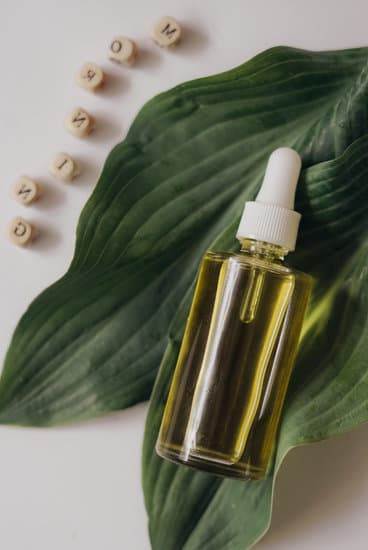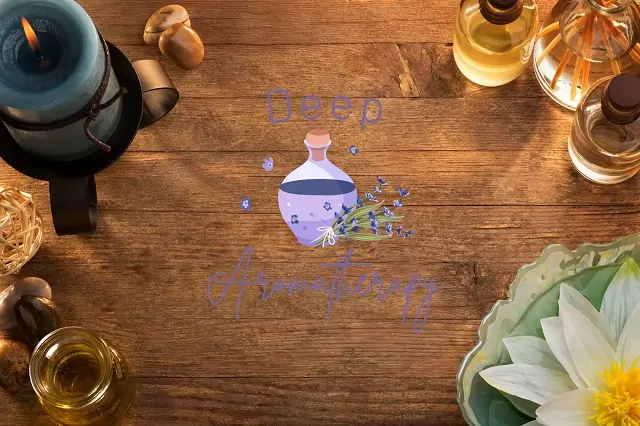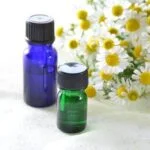Are you interested in learning how to use aromatherapy oils at home? Aromatherapy has a long history of providing multiple benefits for physical and mental well-being. In this article, you will discover the potential advantages of incorporating aromatherapy oils into your daily routine, as well as how to select and use them safely.
Aromatherapy, also known as essential oil therapy, dates back centuries and has been used across various cultures for its healing properties. These oils are extracted from plants and then used to promote relaxation, reduce stress, alleviate pain, improve sleep quality, and enhance overall wellness. Understanding the basics of aromatherapy and its potential benefits can help you make informed decisions about integrating these oils into your lifestyle.
In this comprehensive guide, we will delve into the world of aromatherapy oils, exploring their origins and how they work. We will also discuss the various benefits of using these oils at home for physical and mental health.
Additionally, we will provide practical tips on selecting the right aromatherapy oils for specific purposes, as well as methods for safe usage to create a calming environment in your own home. Whether you are new to aromatherapy or looking to expand your knowledge, this article aims to equip you with the necessary tools to incorporate aromatherapy oils into your daily life effectively.
Benefits of Aromatherapy Oils
The benefits of using aromatherapy oils at home are wide-ranging and can positively impact both physical and mental well-being. The use of essential oils for aromatherapy dates back centuries and has been known to provide numerous advantages for individuals seeking a natural and holistic approach to wellness.
Physical Benefits
Aromatherapy oils have been found to have various physical benefits when used at home. Certain essential oils, such as lavender and peppermint, are known for their soothing properties, which can help alleviate headaches, muscle tension, and even aid in the relief of minor aches and pains. Additionally, some oils possess anti-inflammatory or antibacterial properties, offering potential support for the body’s immune system and overall health.
Mental Health Benefits
In addition to their physical benefits, aromatherapy oils also offer positive effects on mental health. The inhalation of certain essential oils can induce feelings of calmness and relaxation, making them beneficial for reducing stress, anxiety, and promoting better sleep. For example, the scent of citrus oils like lemon or bergamot has been shown to uplift mood and alleviate symptoms of depression.
Emotional Well-Being
Beyond the physical and mental benefits, the use of aromatherapy oils at home can also contribute to emotional well-being. Many essential oils have been used in traditional medicine practices for their ability to support emotional balance and promote a sense of overall well-being. Oils like rose or jasmine are often associated with promoting feelings of love and harmony.
Understanding the wide range of benefits that aromatherapy oils have to offer is essential when considering how to use aromatherapy oils at home effectively. By selecting the right oils for specific purposes and following proper usage techniques, individuals can experience the full spectrum of advantages that these natural remedies have to offer for their holistic health regimen.
Choosing the Right Aromatherapy Oils
Aromatherapy oils offer a wide range of physical and mental health benefits, making them a popular choice for home use. When it comes to selecting the right aromatherapy oils, there are a few important factors to consider. For instance, different essential oils have specific properties and uses, so it’s essential to choose the best ones for your needs.
When choosing the right aromatherapy oils for home use, it’s important to consider the intended purpose. For relaxation and stress relief, lavender, chamomile, and bergamot are excellent choices. On the other hand, if you’re looking for oils to boost energy and improve focus, citrus scents like lemon, orange, and grapefruit can be beneficial. Additionally, certain oils are known for their anti-inflammatory or anti-microbial properties, such as tea tree oil and eucalyptus oil.
Another crucial consideration when choosing aromatherapy oils is their quality. High-quality essential oils are derived from natural sources and undergo rigorous testing to ensure purity and potency. Look for reputable brands that specialize in producing pure essential oils without any synthetic additives or dilution. Keep in mind that pure essential oils may come at a higher cost, but their effectiveness makes them worth the investment.
| Intended Purpose | Recommended Oils |
|---|---|
| Relaxation and Stress Relief | Lavender, Chamomile, Bergamot |
| Energy Boost and Focus Improvement | Lemon, Orange, Grapefruit |
| Anti-Inflammatory or Anti-Microbial Properties | Tea Tree Oil,Eucalyptus Oil |
Methods of Using Aromatherapy Oils
Aromatherapy oils can be used in a variety of ways to promote relaxation, enhance mood, and address various health concerns. Understanding the different methods of using aromatherapy oils at home can help individuals experience the full benefits of these natural remedies.
Inhalation is one of the most common and effective methods of using aromatherapy oils. This can be done by adding a few drops of essential oil to a bowl of hot water and inhaling the steam, using a diffuser, or simply placing a drop on a tissue or cloth and inhaling the aroma. This method allows the scent molecules to travel to the brain and have an immediate impact on emotions and mood.
Topical application is another popular way to use aromatherapy oils. Diluting essential oils with a carrier oil, such as coconut or almond oil, before applying it directly to the skin can provide various benefits, from relieving muscle tension to promoting healthy skin. It’s important to perform a patch test before widespread use to ensure that there are no adverse reactions.
Diffusion is also an effective method for using aromatherapy oils at home. Diffusers disperse essential oil molecules into the air, creating a pleasant and therapeutic atmosphere throughout a room or living space. There are different types of diffusers available, including ultrasonic diffusers, nebulizing diffusers, and heat-based diffusers, each with its own unique way of dispersing essential oils into the air.
| Aromatherapy Method | Benefits |
|---|---|
| Inhalation | Immediate impact on emotions and mood |
| Topical Application | Promotes relief from muscle tension; promotes healthy skin |
| Diffusion | Creates therapeutic atmosphere throughout living spaces. |
Creating Homemade Essential Oil Blends
Once individuals become familiar with different essential oils and their specific benefits, they can begin exploring how to blend them together for customized purposes. Aromatherapists often create their own blends tailored to individual needs such as stress relief, mental clarity or physical ailments.
By understanding how each oil works alone and in combination with others through research nd experimenting with small batches will result in discovering enjoyable fragrances that promote emotional well-being as well as targeting specific health concerns.
Safety Precautions and Considerations
Using aromatherapy oils at home can provide numerous benefits for physical and mental well-being, but it is essential to do so with caution. Before incorporating these oils into your daily routine, it is crucial to understand the safety precautions and considerations associated with their use.
First and foremost, it is important to remember that essential oils are highly concentrated substances and should be handled with care. When using aromatherapy oils at home, always dilute them properly before applying them to the skin to avoid irritation or adverse reactions. Additionally, some essential oils can be toxic if ingested, so it is vital to keep them out of reach of children and pets.
Another safety consideration when using aromatherapy oils at home is the potential impact on individuals who are pregnant or have certain medical conditions. Some essential oils can affect hormone levels and may not be safe for use during pregnancy. It is always advisable to consult a healthcare professional before using aromatherapy oils if you are pregnant or have any existing health concerns.
In addition to these precautions, it is important to be mindful of how the aroma of essential oils can affect those around you. Some individuals may be sensitive or allergic to certain scents, so it is considerate to use aromatherapy oils in a well-ventilated area and ensure that others in your household are comfortable with the chosen scents.
Overall, by being aware of these safety precautions and considerations, you can enjoy the benefits of aromatherapy oils at home while minimizing any potential risks. It’s also important to educate yourself about each oil’s properties before beginning their use; many resources available offer guidelines for usage based upon individual needs or conditions. With proper knowledge and awareness, incorporating aromatherapy into your routine can be a safe and enjoyable experience that enhances your overall well-being.
Creating a Relaxing Aromatherapy Environment
Aromatherapy oils can be a powerful tool for creating a relaxing and soothing atmosphere at home. Whether you are looking to reduce stress, improve sleep, or simply enjoy the pleasant scents of essential oils, setting up a calming environment is essential. Here are some tips for creating a tranquil space for aromatherapy at home:
- Choose a Quiet Space: Find a peaceful area in your home where you can relax without distractions. This could be a cozy corner of your living room, a dedicated relaxation area, or even your bedroom.
- Use Aromatherapy Diffusers: A diffuser is an excellent way to disperse essential oils into the air, filling the room with their therapeutic fragrance. There are several types of diffusers available, including ultrasonic, nebulizing, and heat-based diffusers.
- Set the Mood with Lighting: Soft, warm lighting can enhance the relaxing atmosphere when using aromatherapy oils. Consider using candles, Himalayan salt lamps, or dimmable light fixtures to create a serene environment.
- Incorporate Relaxing Décor: Surround yourself with items that promote relaxation and calmness, such as cozy blankets, comfortable cushions, and soothing colors. You may also want to include elements from nature, such as plants or natural materials.
By following these tips, you can create an inviting space where you can fully experience the benefits of aromatherapy oils at home. Whether you prefer to use essential oils for meditation, yoga practice, or simply unwinding after a long day, having a dedicated relaxation area can enhance your overall well-being and enjoyment of aromatherapy.
Incorporating Aromatherapy Oils Into Daily Routines
Practical Ways to Integrate Aromatherapy Oils
One of the most popular and effective ways to incorporate aromatherapy oils into daily routines is through meditation and yoga. By adding a few drops of calming essential oils such as lavender or chamomile to a diffuser or applying them topically before starting a meditation or yoga session, individuals can enhance their relaxation experience and promote a sense of calm and tranquility.
Furthermore, using aromatherapy oils in skincare routines can provide numerous benefits for the skin while also offering therapeutic effects. Adding a couple of drops of tea tree oil to a facial cleanser can help combat acne and blemishes, while incorporating rosehip oil in a moisturizer can aid in hydrating and rejuvenating the skin.
Using Essential Oils for Stress Relief and Mood Enhancement
Aromatherapy oils can also be utilized as part of stress relief practices. For instance, creating a custom blend of essential oils such as bergamot, ylang-ylang, and frankincense in a rollerball bottle can serve as an on-the-go mood booster during stressful moments. Applying the blend to pulse points or simply inhaling its aroma can help alleviate feelings of anxiety and tension.
In addition, incorporating uplifting essential oils like citrus (such as lemon or orange) into daily activities such as showering or diffusing them during work hours can contribute to improved mood and increased mental alertness. The invigorating scents act as natural mood enhancers, positively influencing overall well-being throughout the day.
Tips for Integration
To effectively incorporate aromatherapy oils into daily routines, it is important to consider individual preferences, sensitivities, and needs. Experimenting with different essential oil blends and application methods will allow individuals to identify the most suitable approach for their lifestyle.
It’s also beneficial to have a selection of versatile essential oils on hand for various purposes, ensuring there is always an option available for specific needs throughout the day. Additionally, being mindful of proper dilution ratios and usage guidelines is crucial for maximizing the benefits while ensuring safety when using aromatherapy oils at home.
Resources for Aromatherapy Oils
Now that you have learned about the benefits, methods, and safety considerations of aromatherapy oils, it’s important to know where to find high-quality oils for use at home. Below are some recommended resources for purchasing essential oils and learning more about aromatherapy:
1. Specialty Stores: Many health food stores or specialty stores dedicated to natural products and alternative medicine carry a wide selection of aromatherapy oils. Look for stores that emphasize the purity and quality of their essential oils, as these are ideal for therapeutic use.
2. Online Retailers: There are numerous online retailers specializing in essential oils, allowing you to browse through a wide variety of options from the comfort of your home. When shopping online, be sure to read customer reviews and check for certifications or quality guarantees.
3. Certified Aromatherapists: Aromatherapists who are certified by reputable organizations often sell their own blends of essential oils or can recommend trusted brands. Additionally, they can provide personalized advice on choosing oils based on individual needs.
Conclusion
Aromatherapy has been used for centuries as a natural way to improve physical and mental well-being. Aromatherapy oils, also known as essential oils, are highly concentrated plant extracts that can be used in a variety of ways to promote relaxation, relieve stress, and enhance overall health. In this article, we have discussed the numerous benefits of using aromatherapy oils at home, as well as how to select the right oils for specific purposes.
One of the most common questions when it comes to aromatherapy is how to use aromatherapy oils at home. There are several methods for utilizing these oils, including inhalation, topical application, and diffusion. Inhalation involves breathing in the aroma of the oil, which can have a direct effect on the limbic system in the brain responsible for emotions and memories.
Additionally, topical application involves diluting essential oils with a carrier oil and applying them directly to the skin for absorption. Lastly, diffusing essential oils into the air through devices such as diffusers can help create a calming atmosphere in any room.
To create your own personalized blends of essential oils, you can experiment with different combinations that suit your preferences and needs. When selecting aromatherapy oils, it is important to consider their individual properties and potential therapeutic benefits.
For example, lavender oil is often used for its calming effects, while peppermint oil can help alleviate headaches and improve focus. It is crucial to remember that these potent oils should be used with caution and following safety guidelines to avoid any adverse reactions.
Overall, incorporating aromatherapy oils into daily routines is a simple yet effective way to enhance both physical and mental well-being. By creating a relaxing environment at home using essential oils, individuals can experience reduced stress levels and improved mood on a regular basis. With a wide range of resources available for purchasing high-quality essential oils and learning more about aromatherapy practices, anyone can easily begin their journey towards utilizing these natural remedies in their daily lives.
Additional Resources
In conclusion, aromatherapy oils offer a myriad of benefits for both physical and mental well-being. From stress relief to skincare and creating a relaxing environment, these essential oils can significantly enhance our daily lives. By understanding how to use aromatherapy oils at home and incorporating them into our routines, we have the opportunity to experience the positive effects they can bring.
When it comes to utilizing aromatherapy oils at home, it’s essential to consider safety precautions, especially when using them around children, pets, or during pregnancy. Following the recommended guidelines for dilution and usage can help ensure a safe and enjoyable experience with essential oils.
As readers explore the various methods of using aromatherapy oils presented in this article – inhalation, topical application, diffusion, and more – they will discover that there are numerous ways to integrate these oils into their daily activities. With a bit of creativity and experimentation, individuals can find the best ways to enjoy the benefits of aromatherapy in their own homes.
In closing, it is highly encouraged that readers begin to incorporate aromatherapy oils into their daily lives for overall well-being. Whether through relaxation techniques like meditation or yoga, creating a soothing home spa environment, or simply infusing their living spaces with delightful scents, the possibilities are endless. By doing so, individuals may discover a newfound appreciation for the power of aromatherapy oils in enriching their everyday experiences.
Frequently Asked Questions
What Is the Best Way to Use Aromatherapy Oils?
The best way to use aromatherapy oils is through diffusion. This can be done using a diffuser, allowing the scent to disperse throughout the room. You can also add a few drops of oil to a carrier oil and use it for massage or in baths.
How Do You Use Essential Oils in Your House?
Essential oils can be used in a variety of ways in the house. They can be added to cleaning products for their natural antimicrobial properties. They can also be used in homemade air fresheners or added to laundry detergent for a natural scent boost.
How Do You Use Essential Oils for Beginners?
For beginners, it’s important to start slowly with essential oils. Begin by choosing one or two oils that appeal to you and learn about their benefits and uses.
Start with simple methods like adding a few drops to a diffuser or mixing with a carrier oil for skin application. Gradually expand your collection and knowledge as you become more comfortable with essential oils.

Are you looking for a natural way to improve your health and wellbeing?
If so, aromatherapy may be the answer for you.





